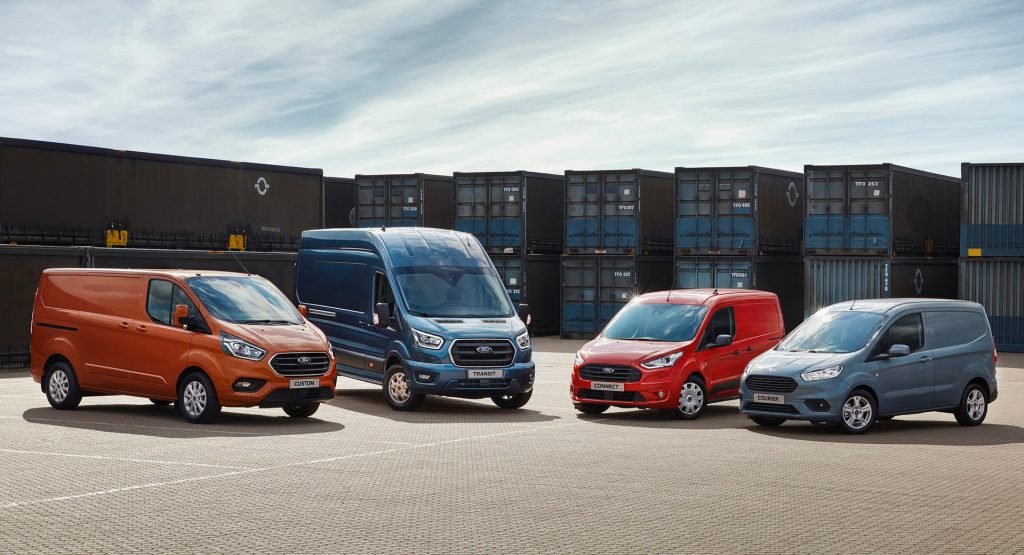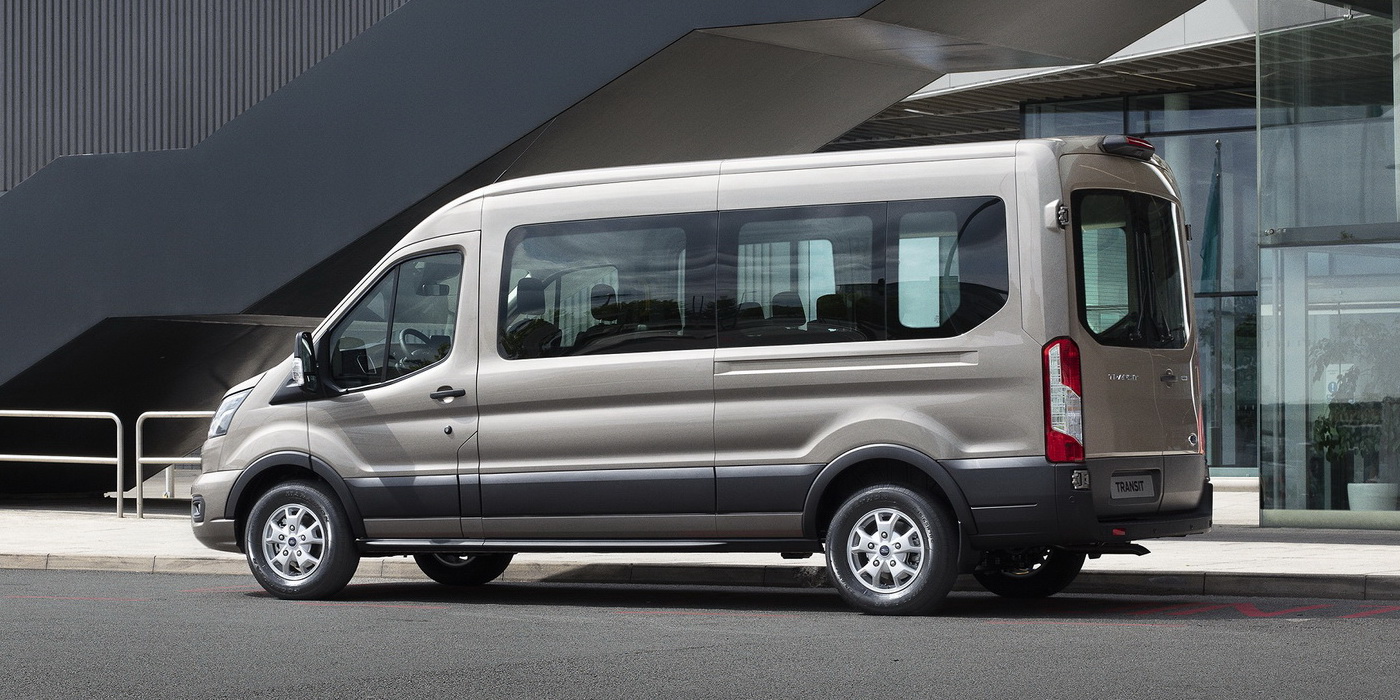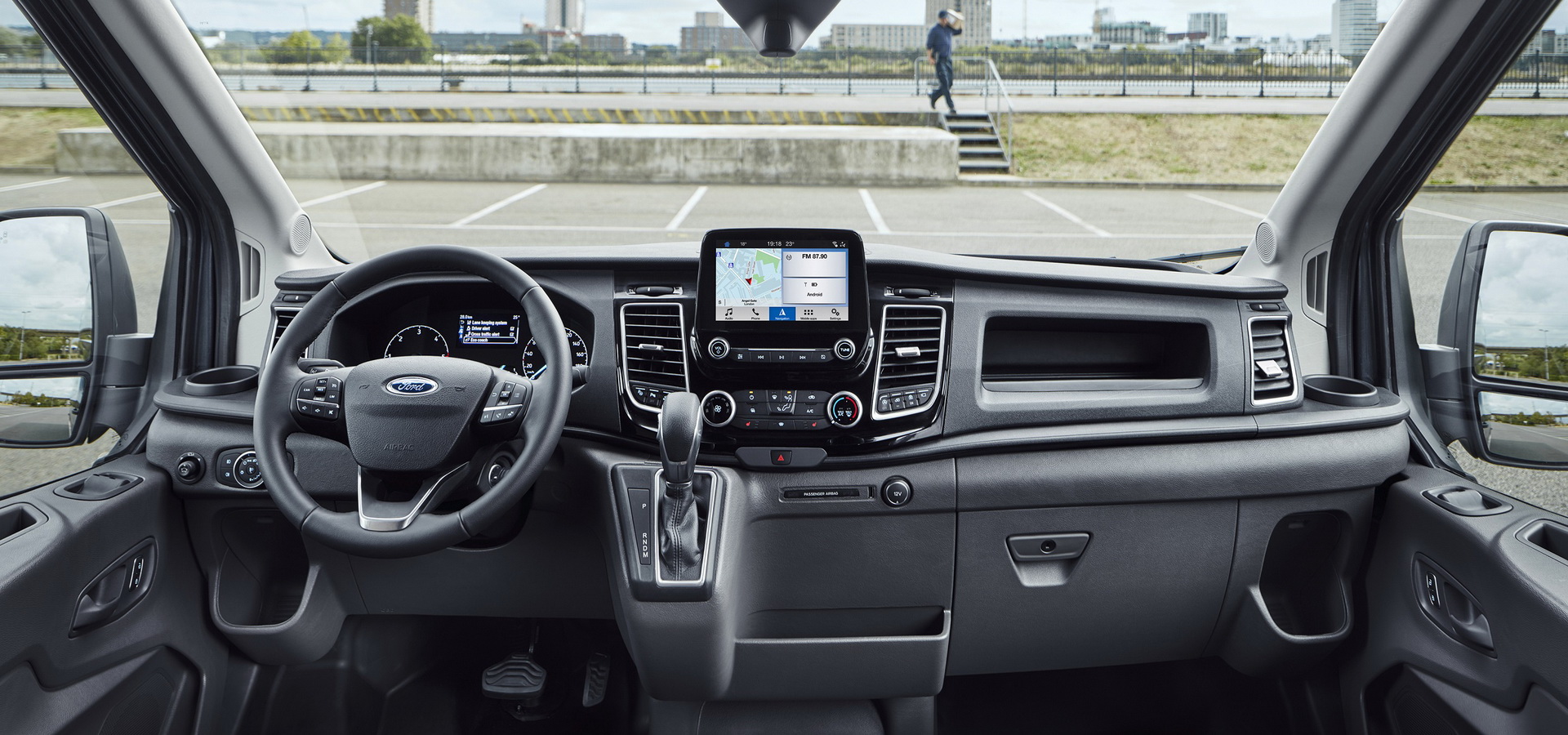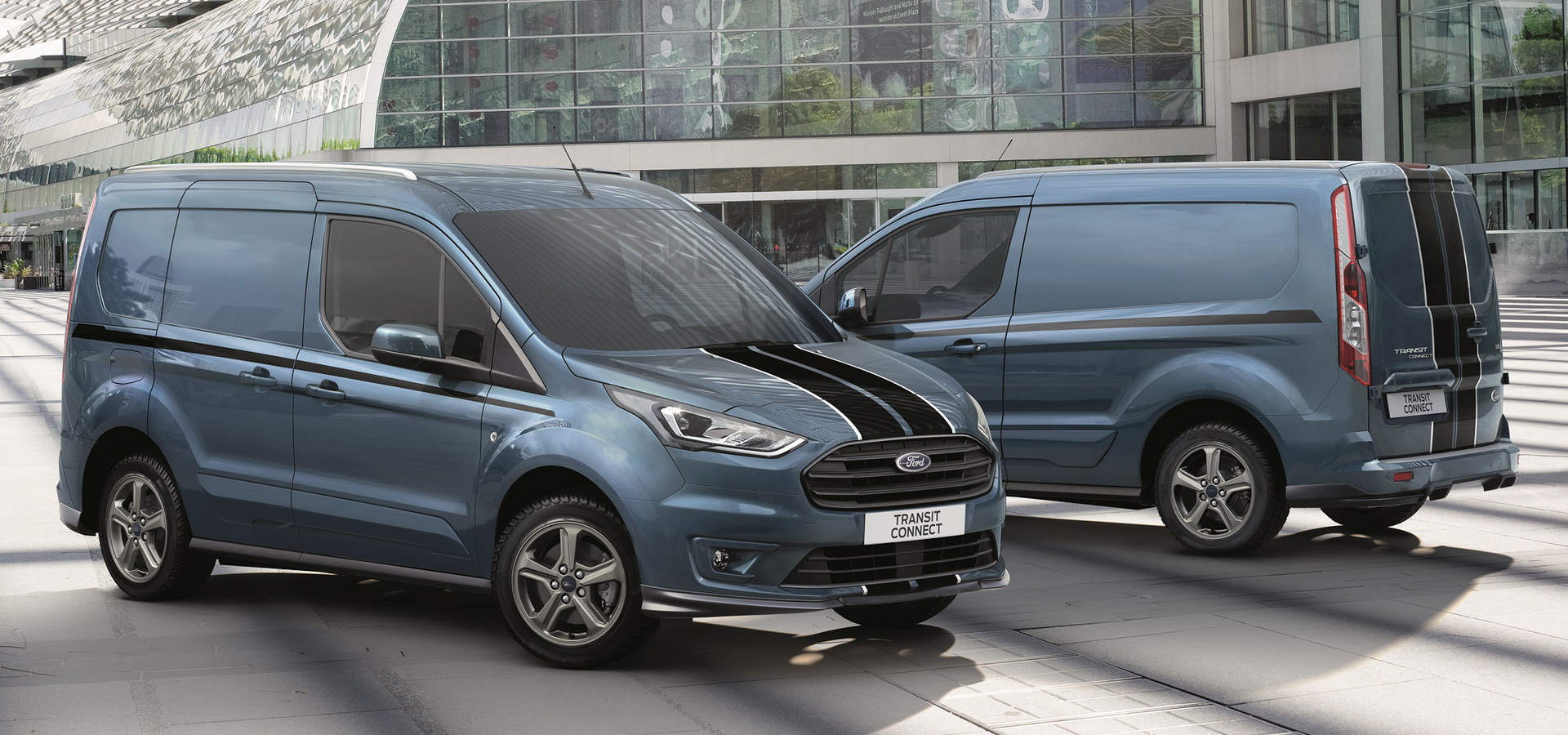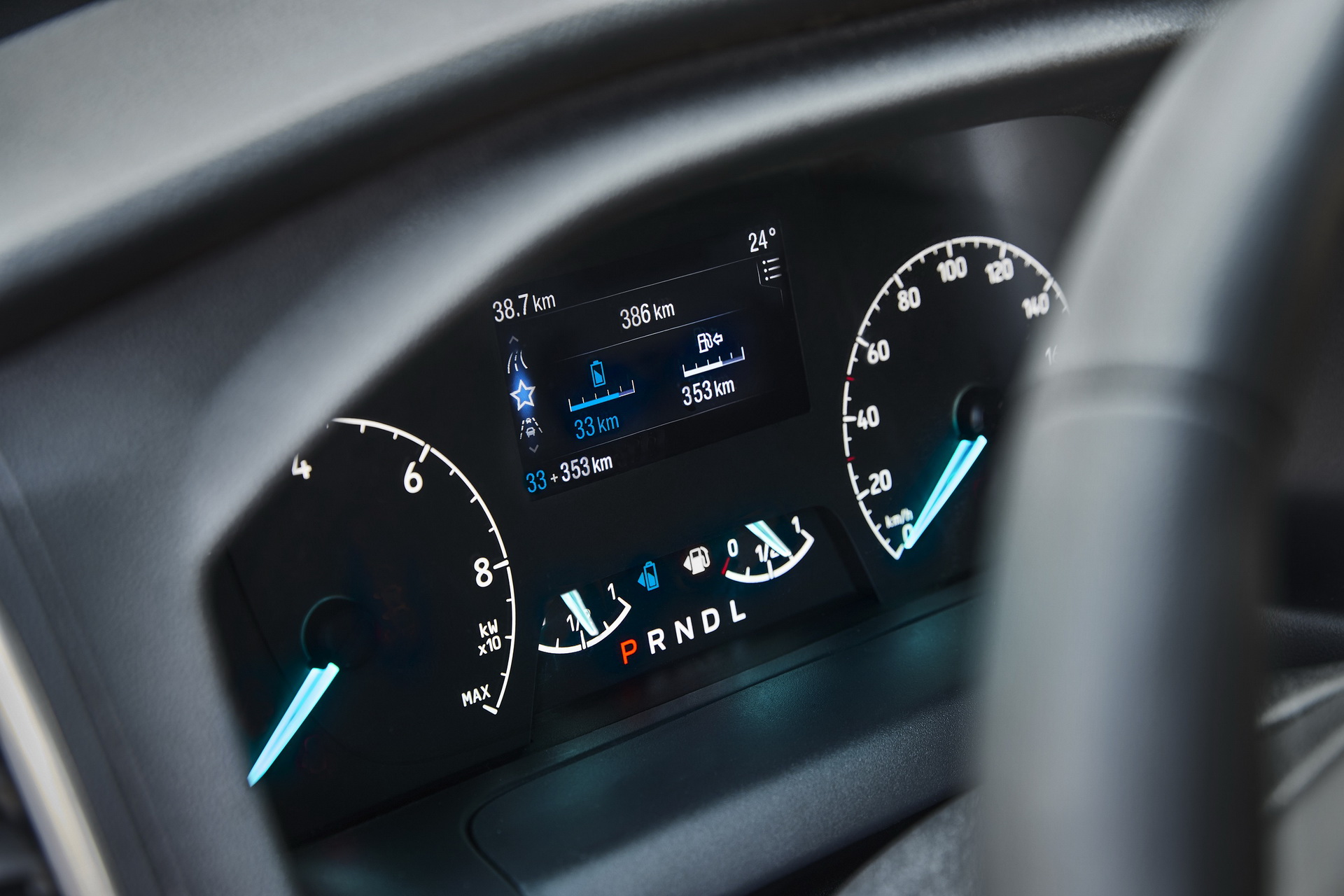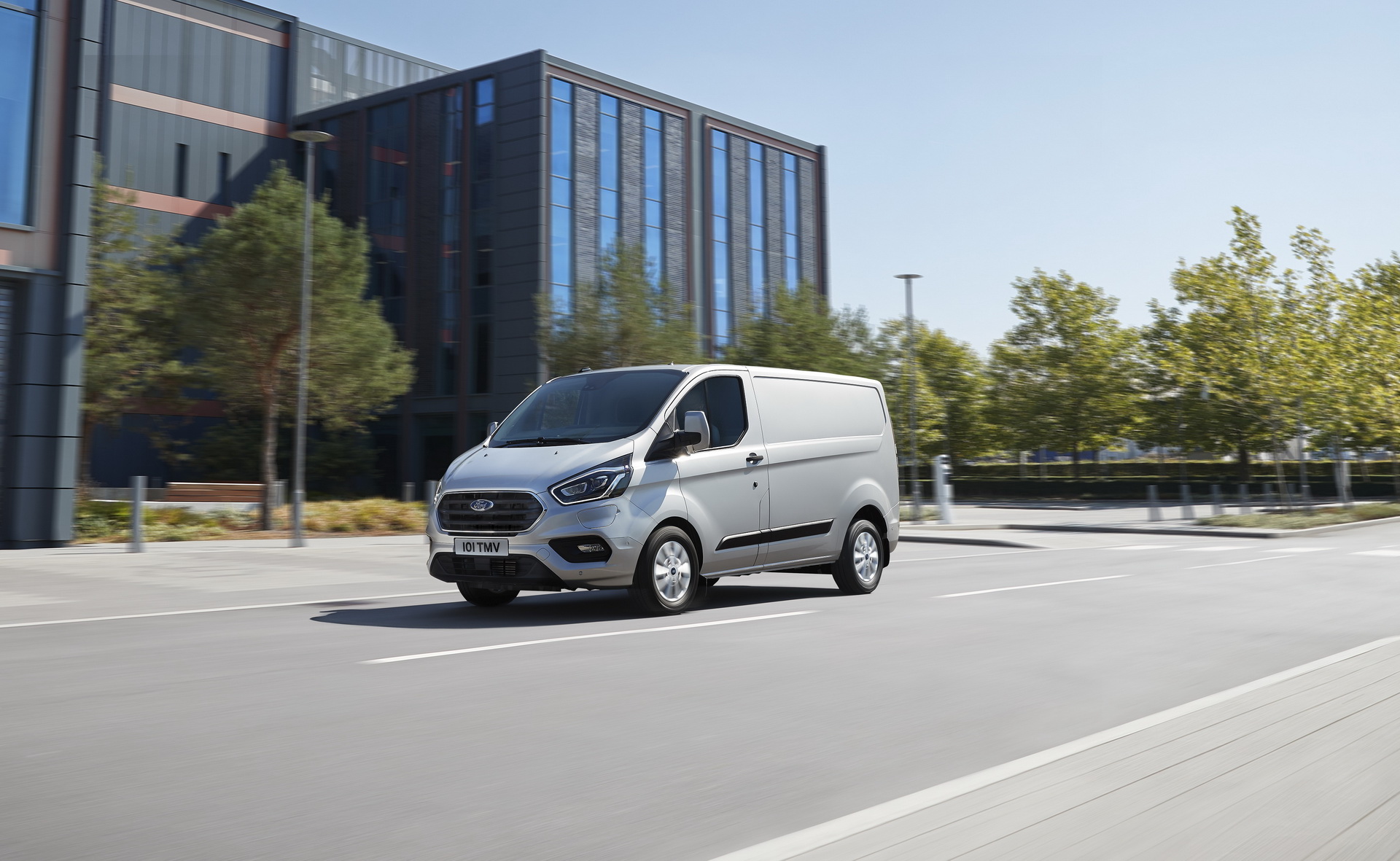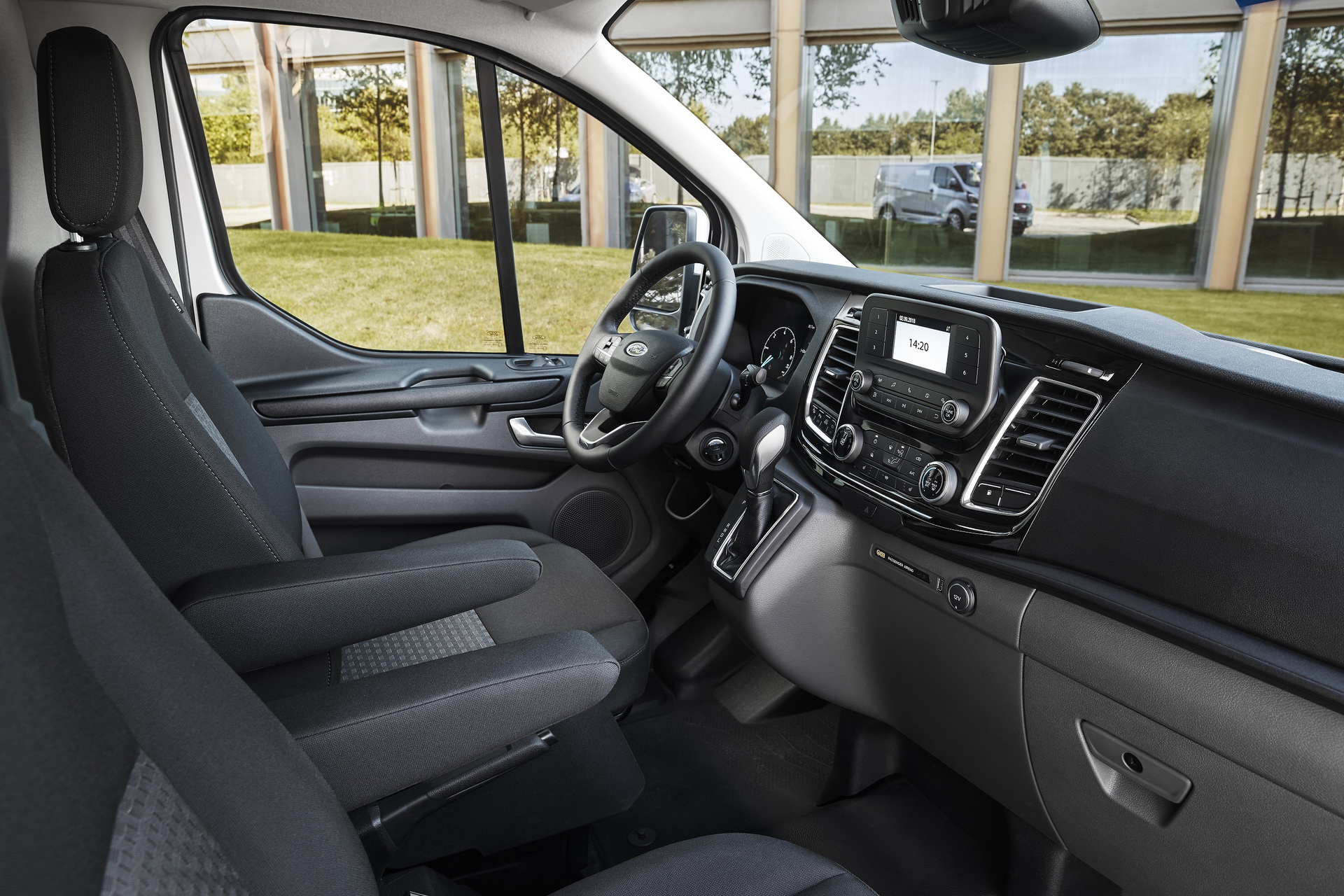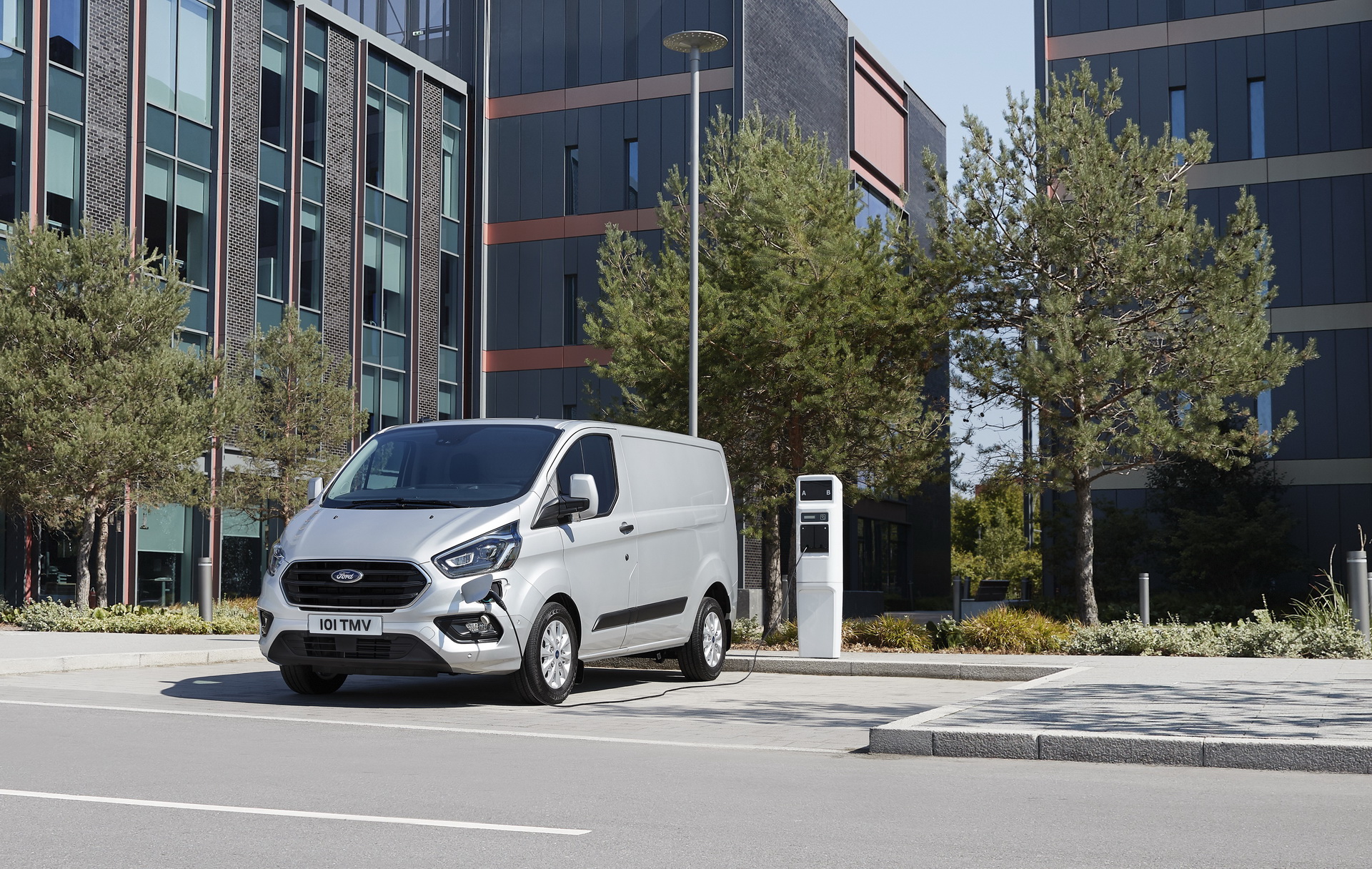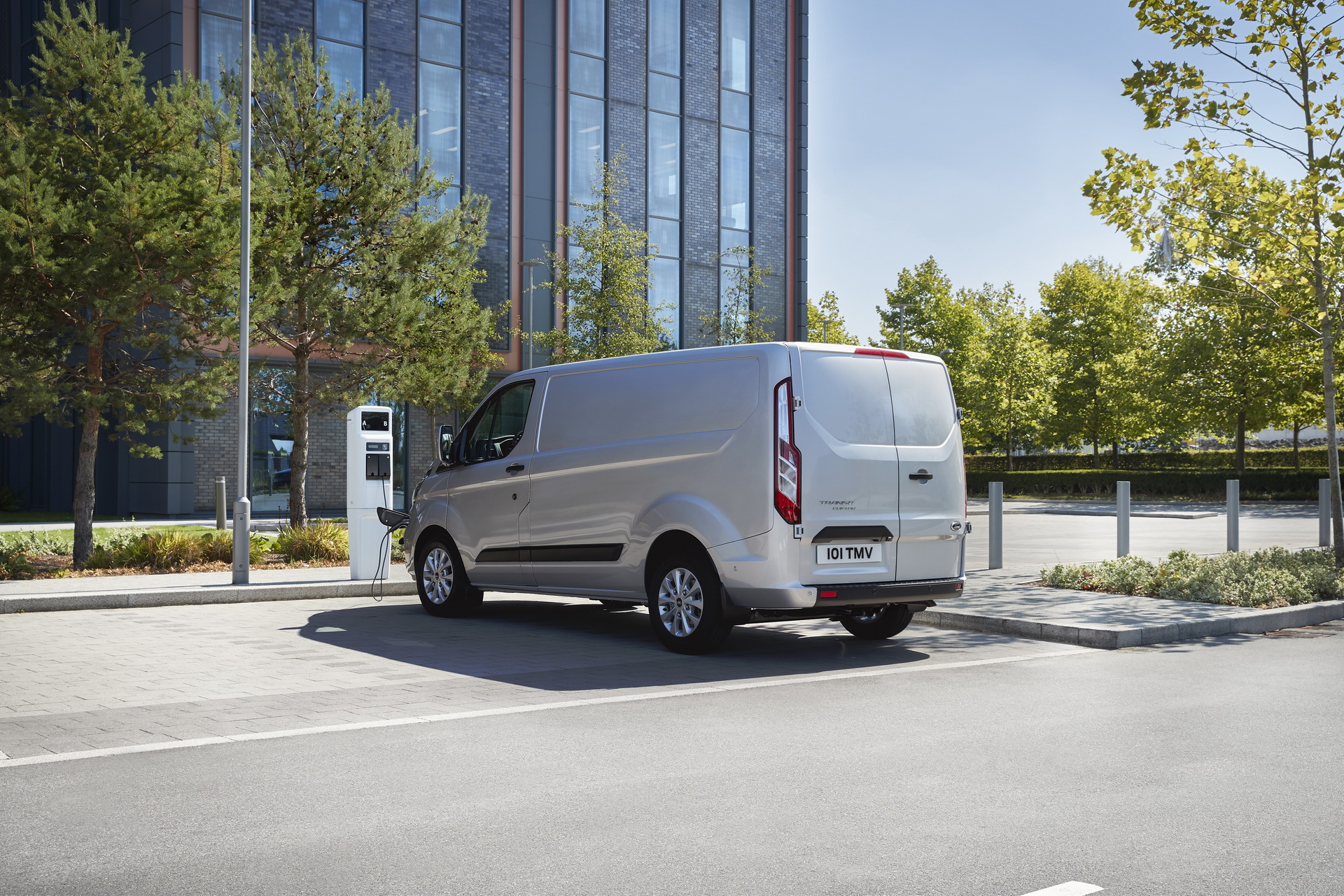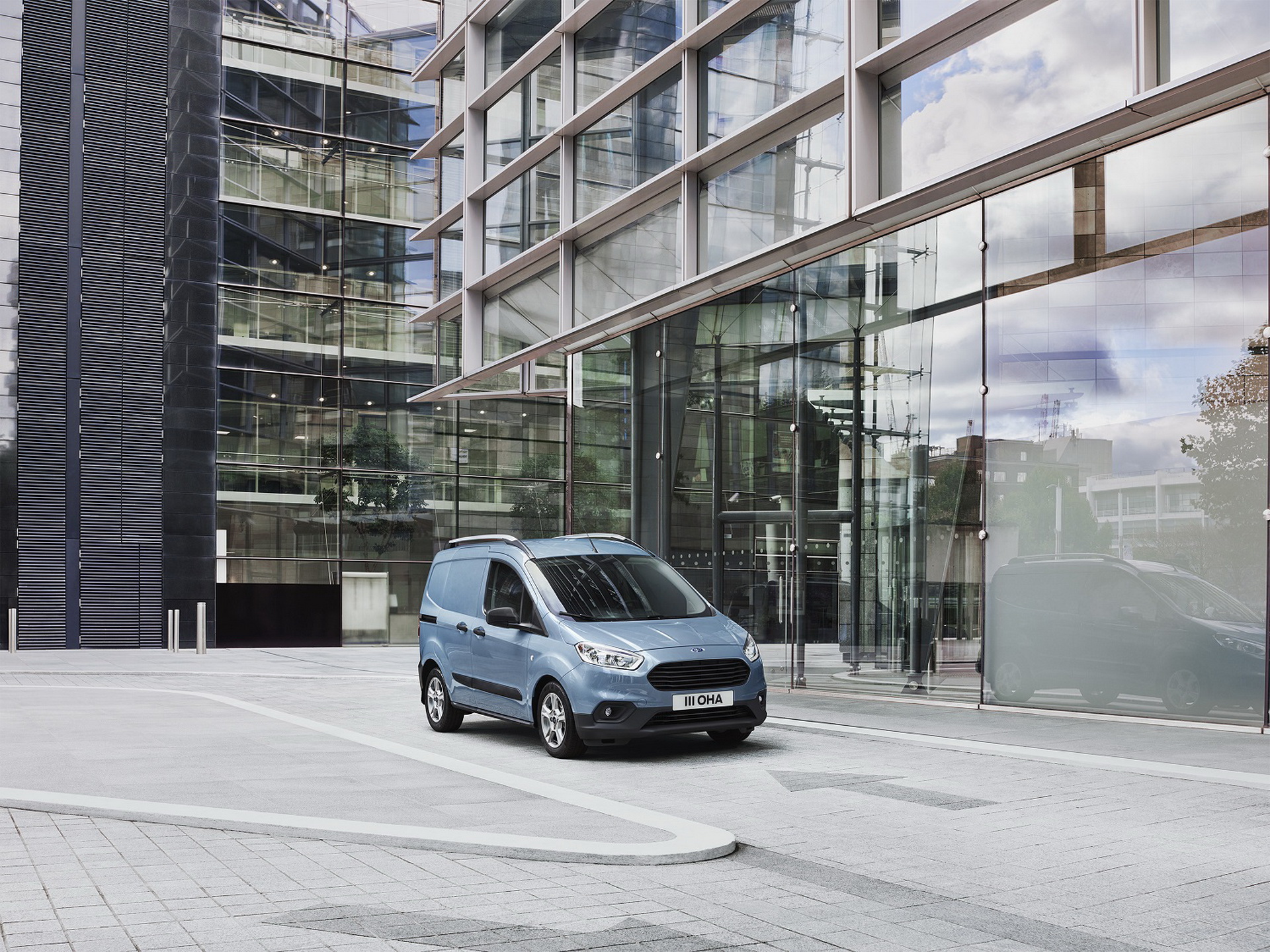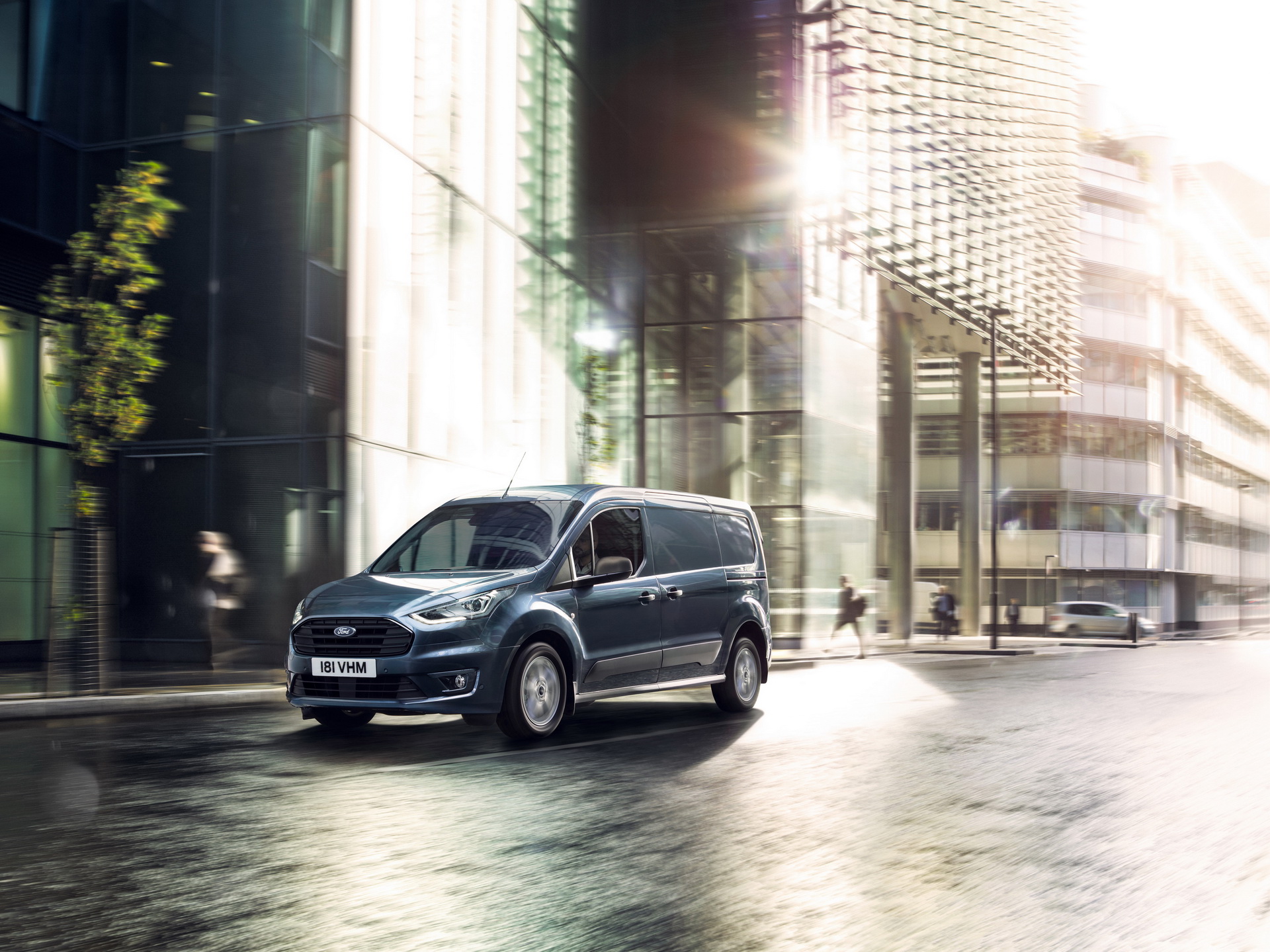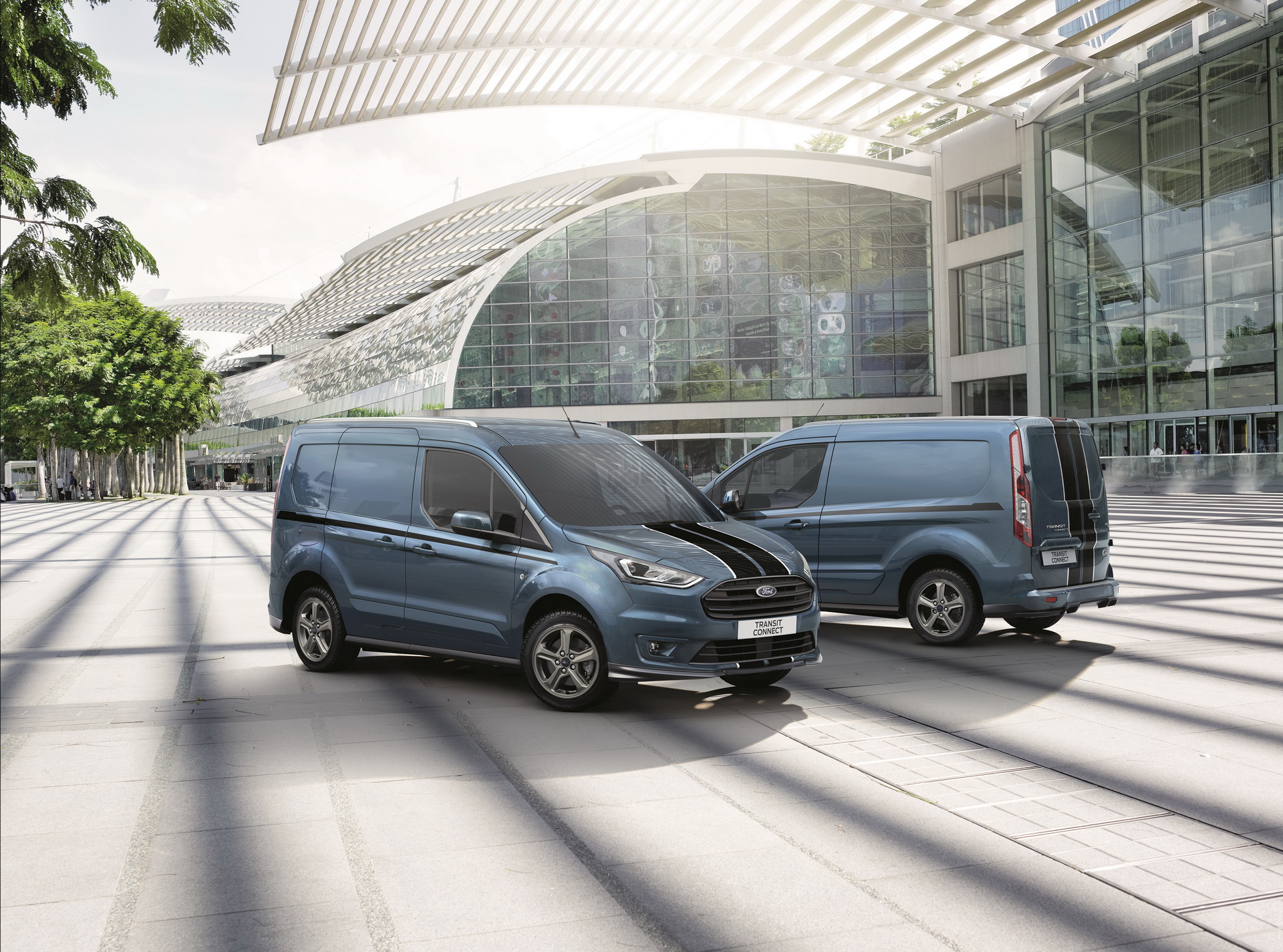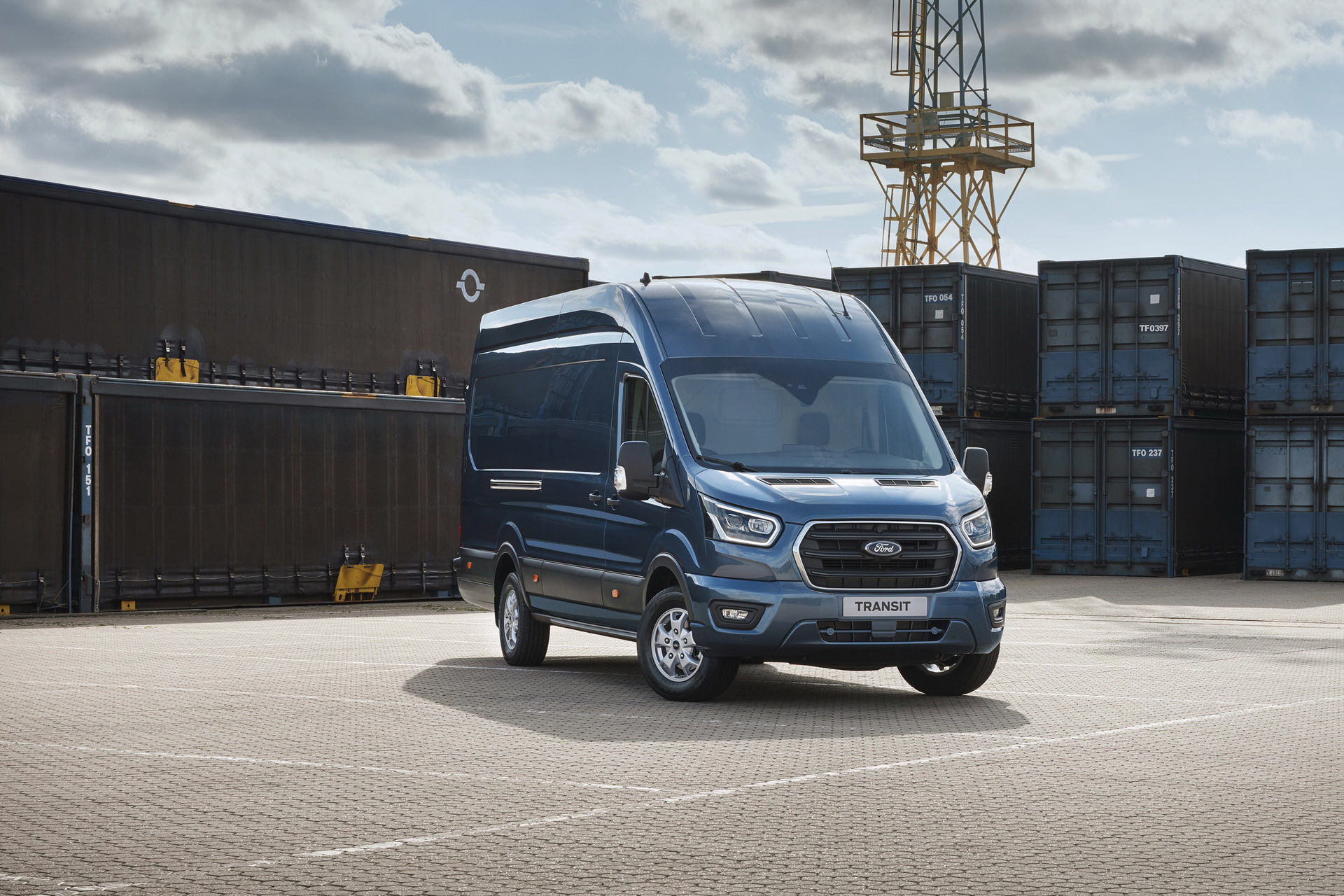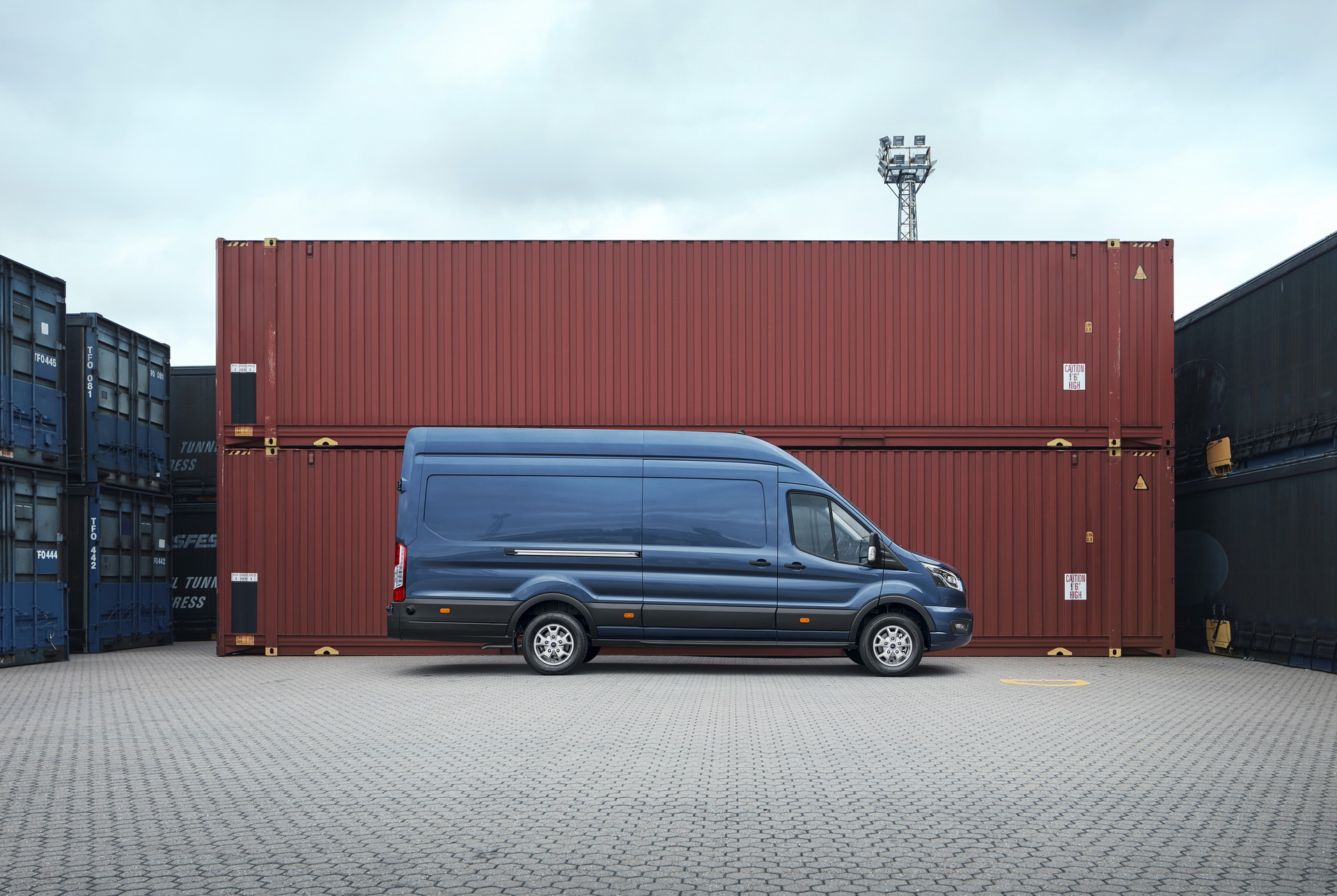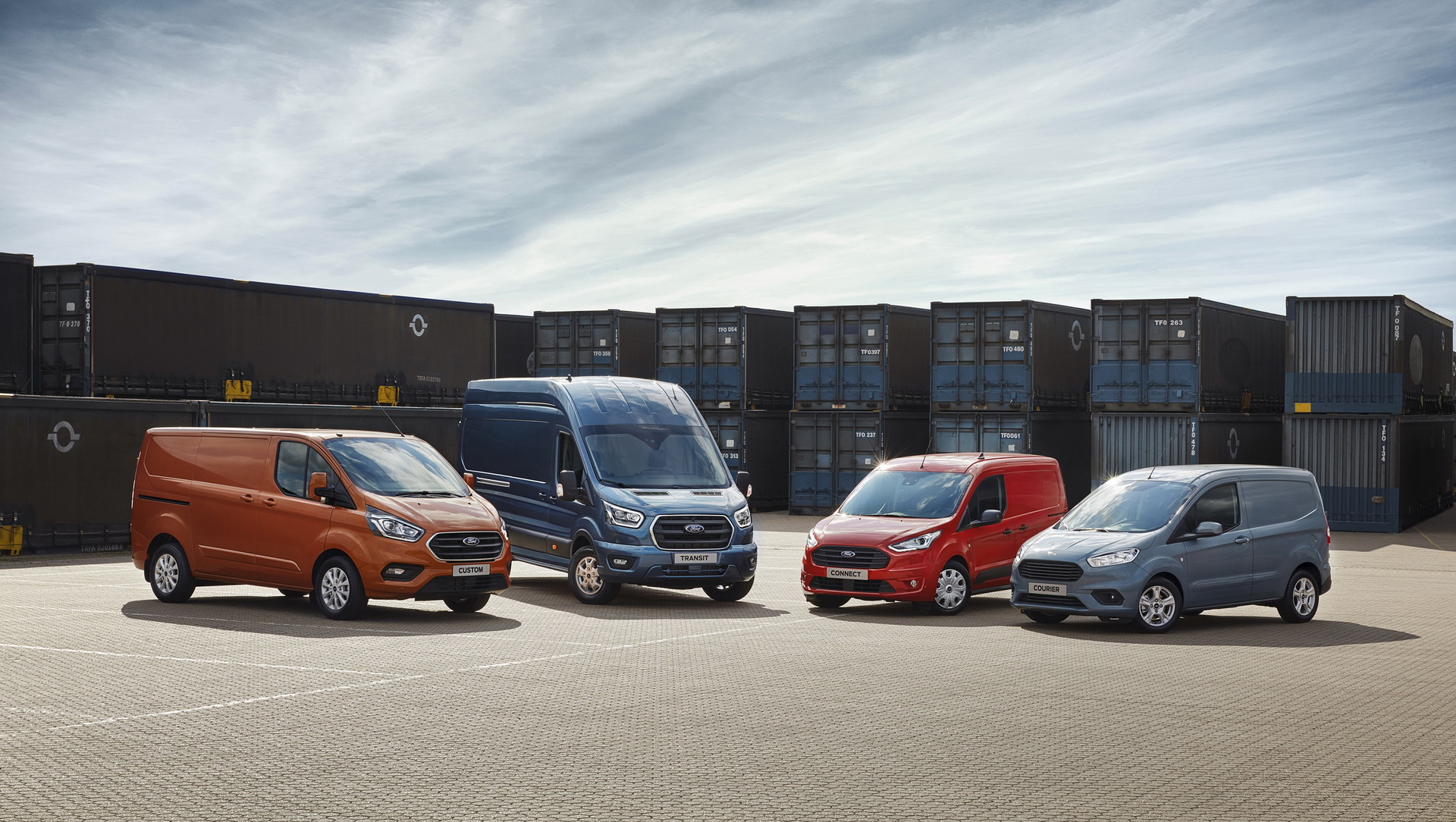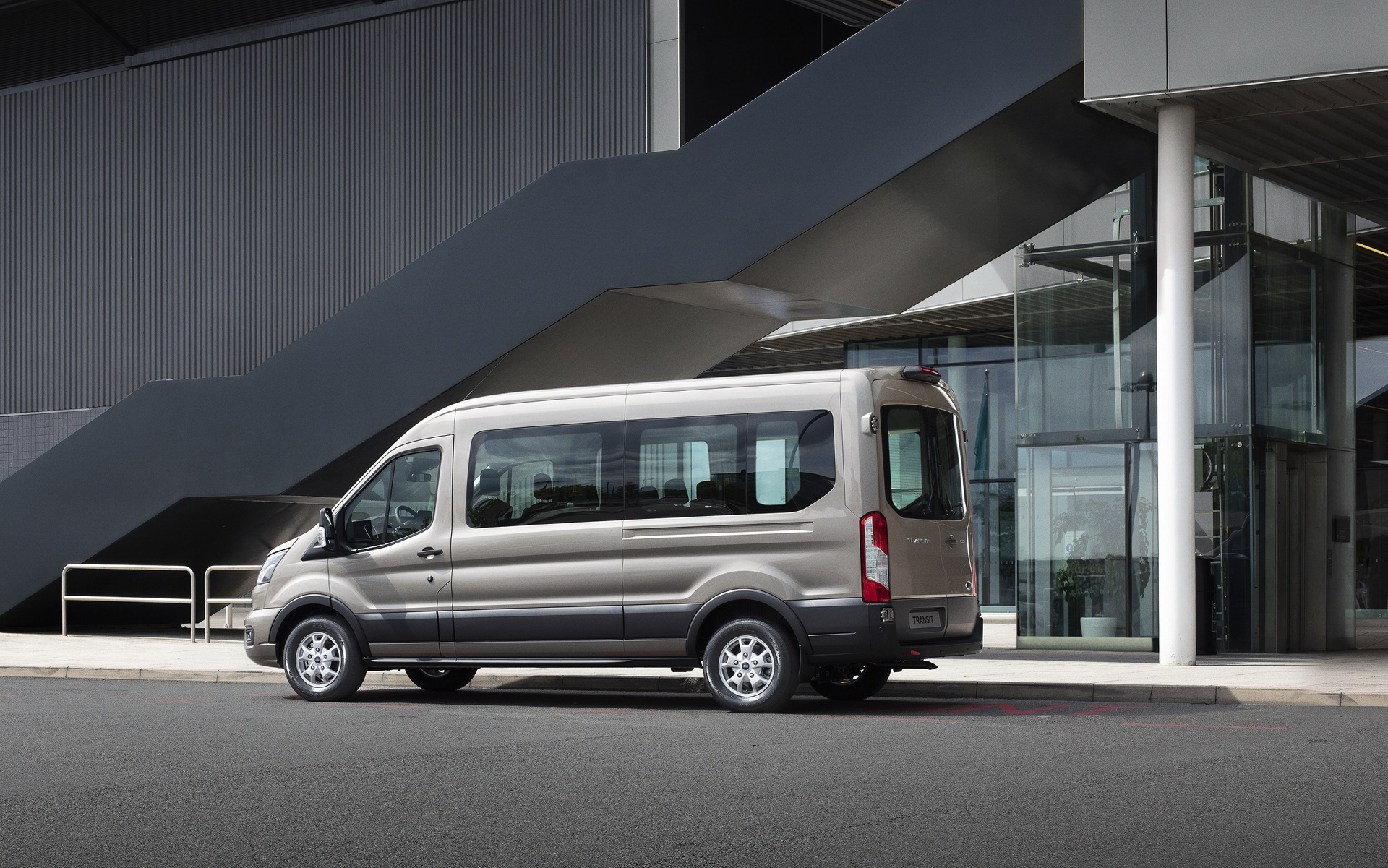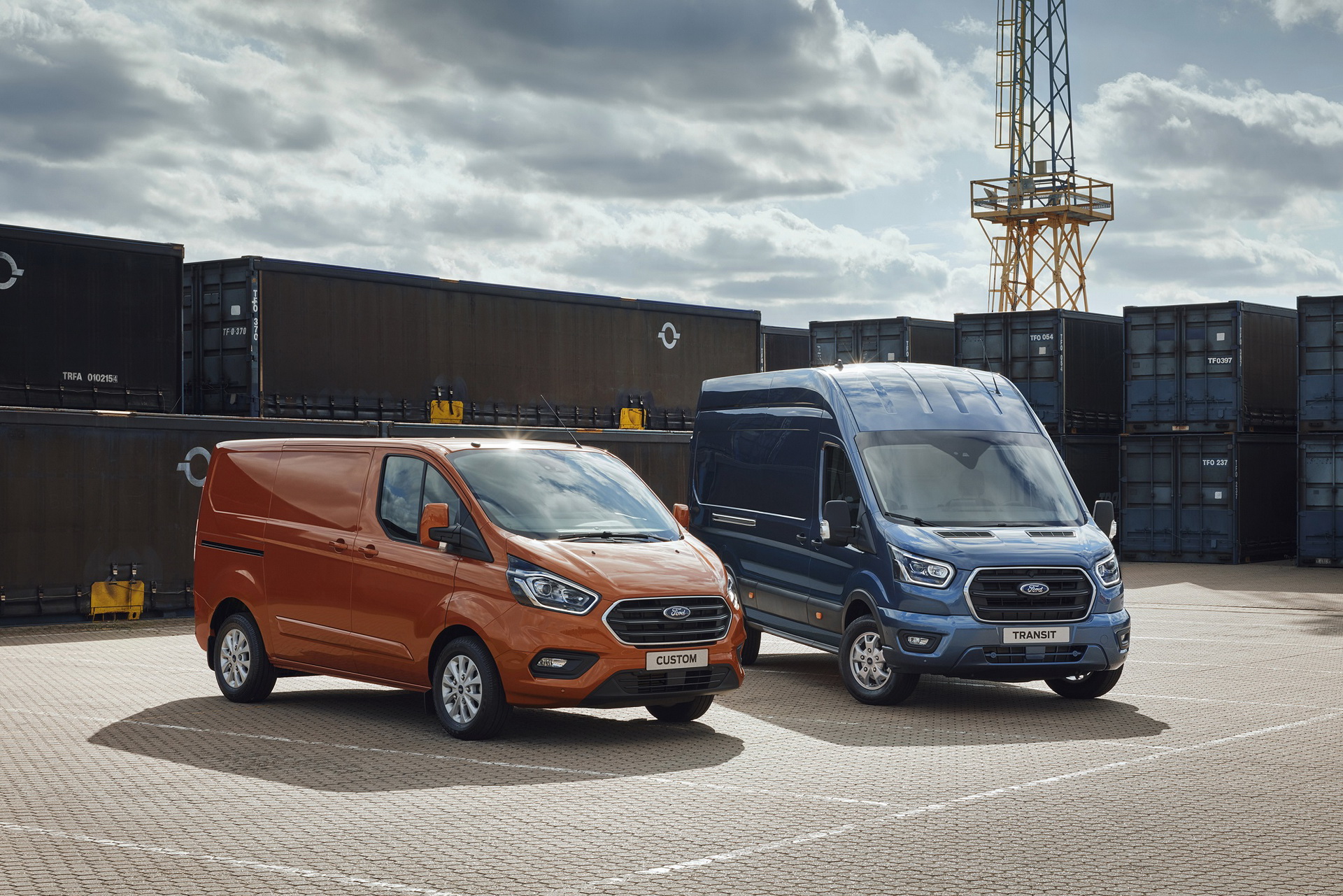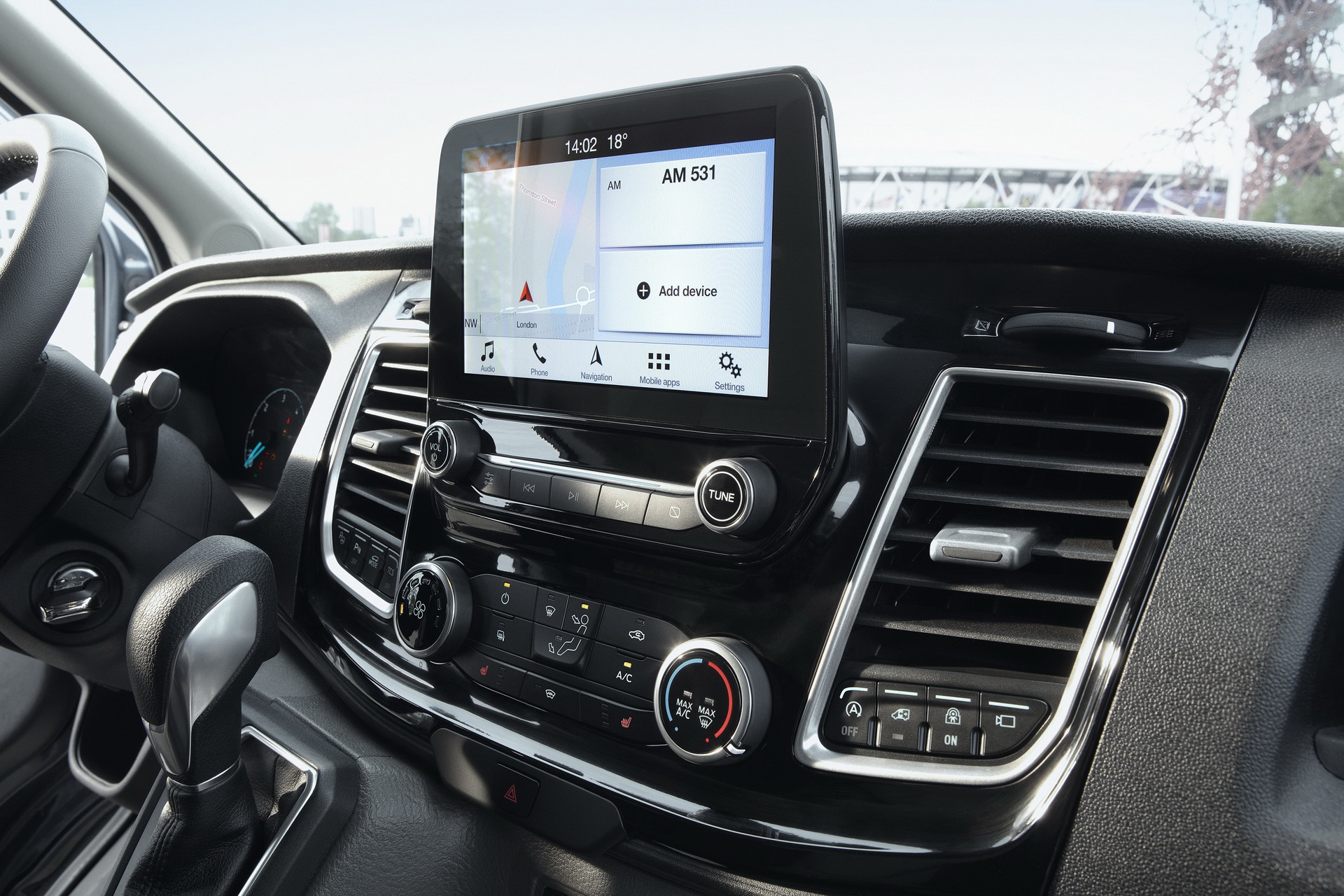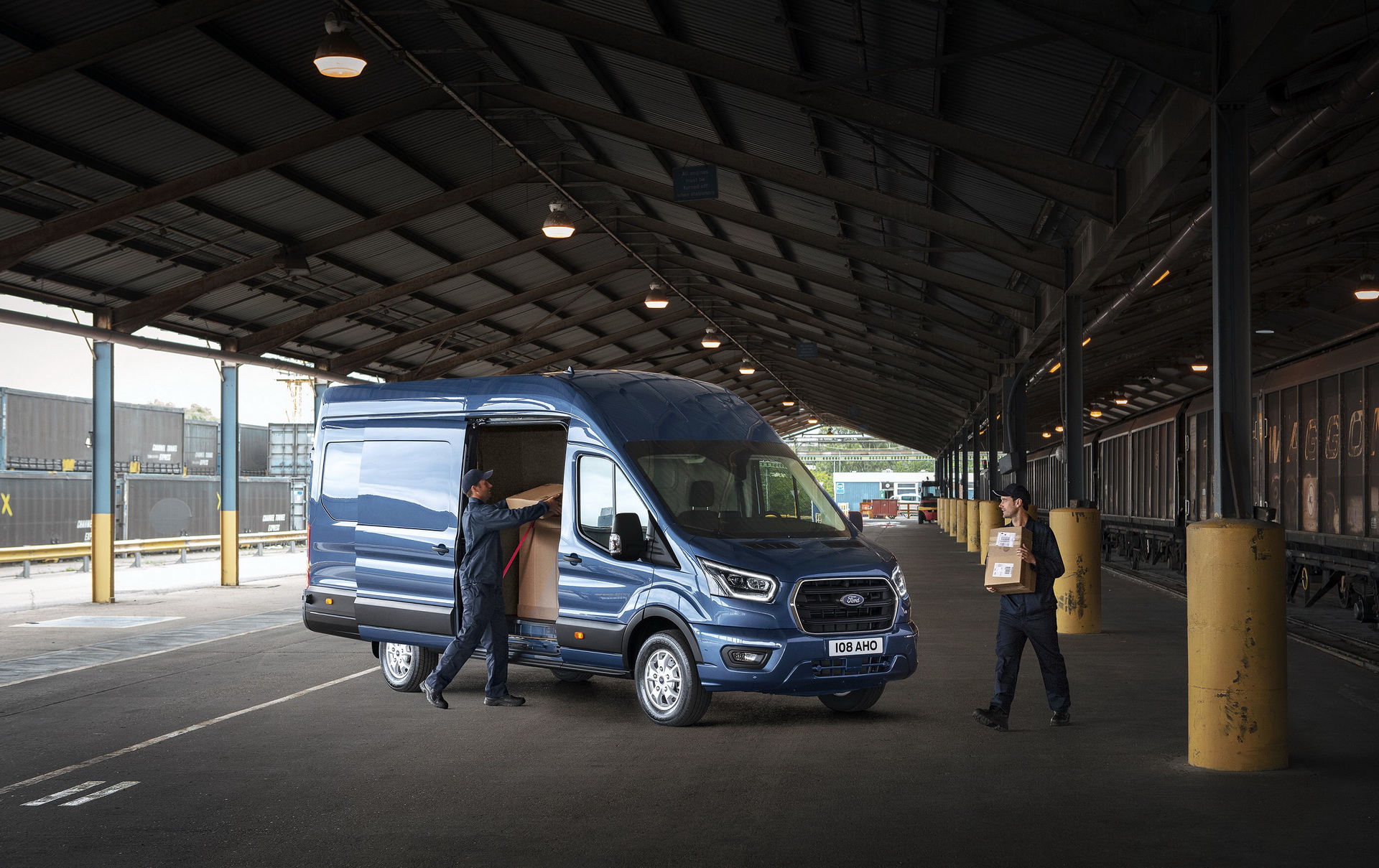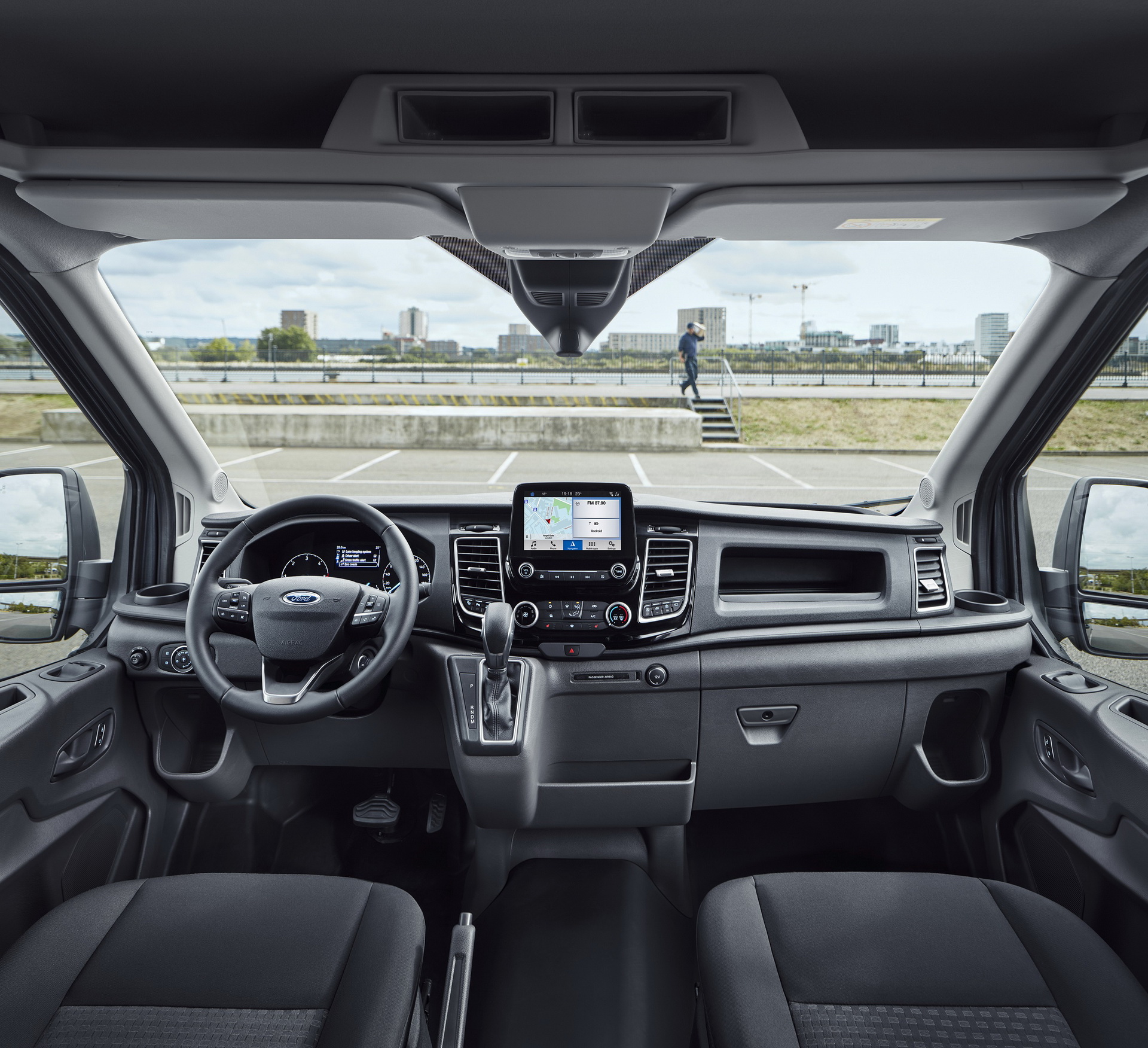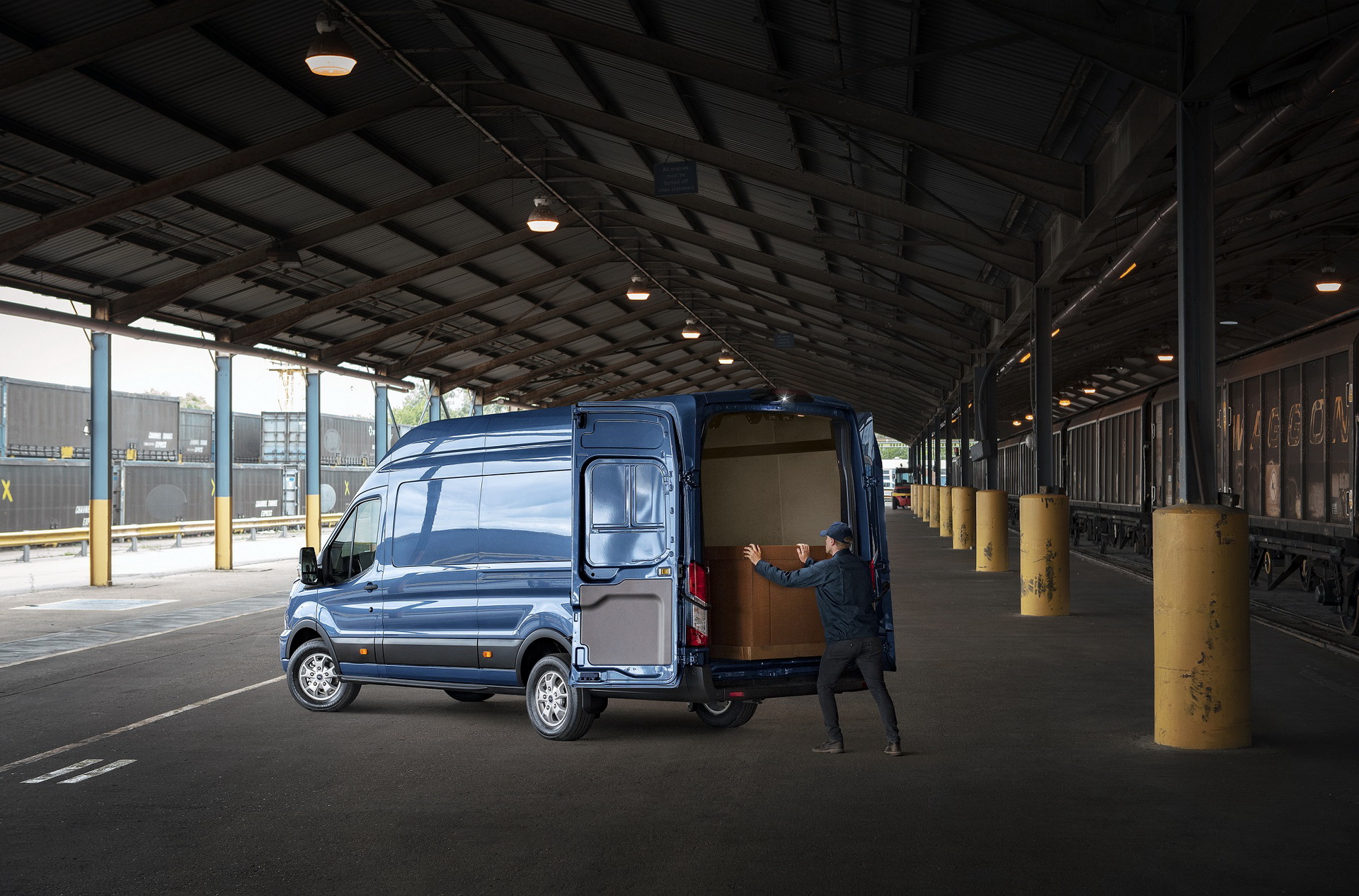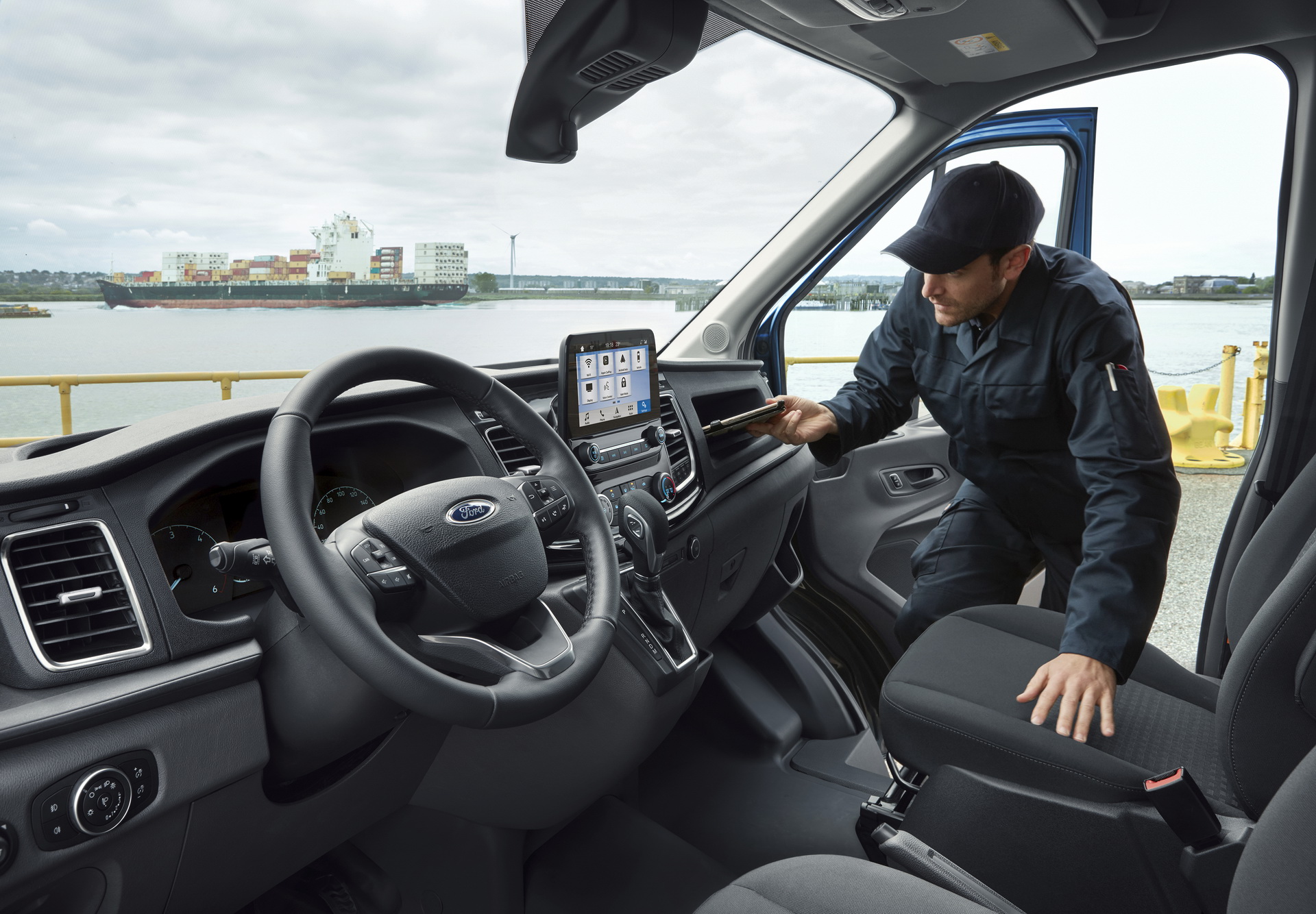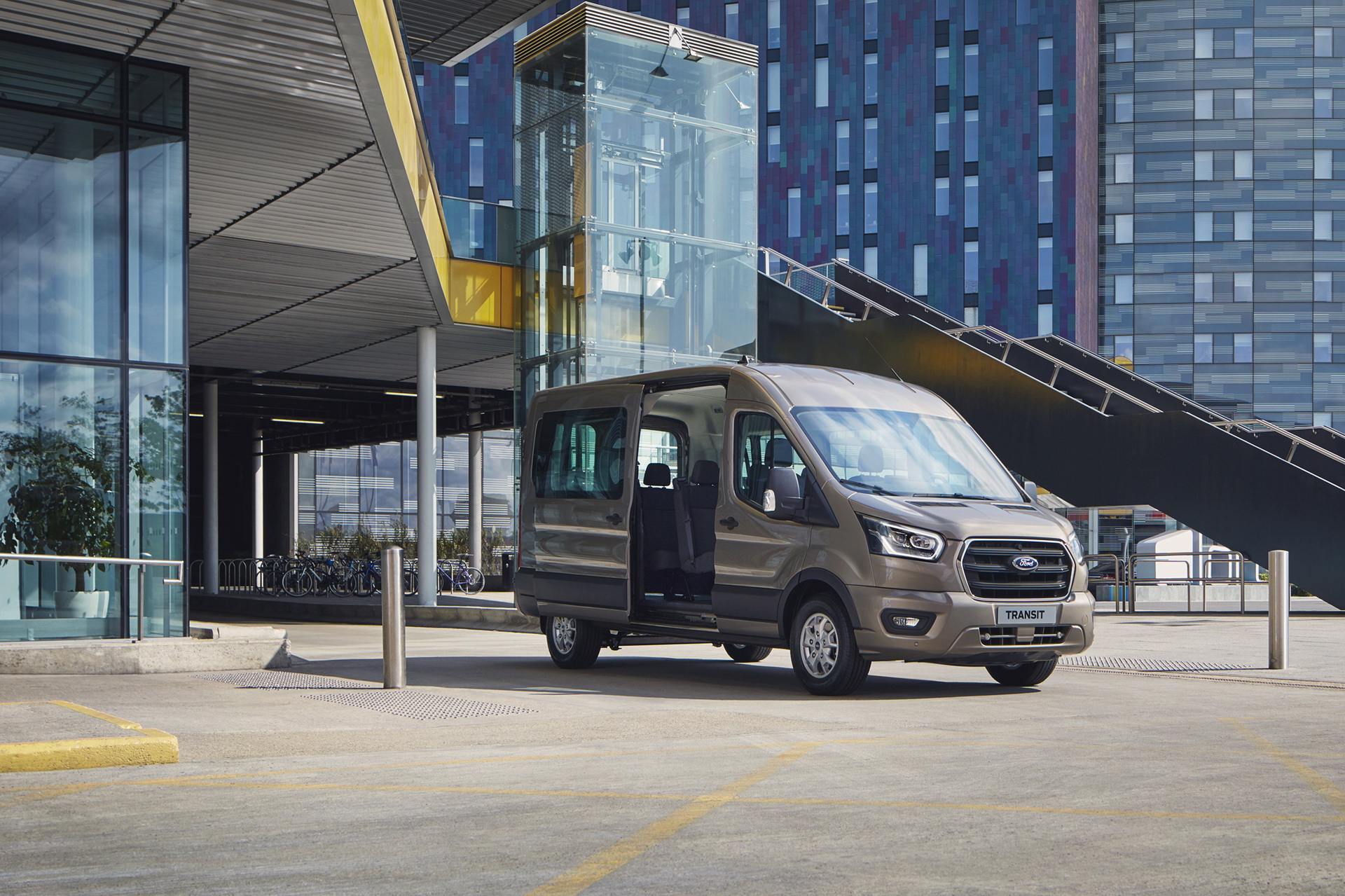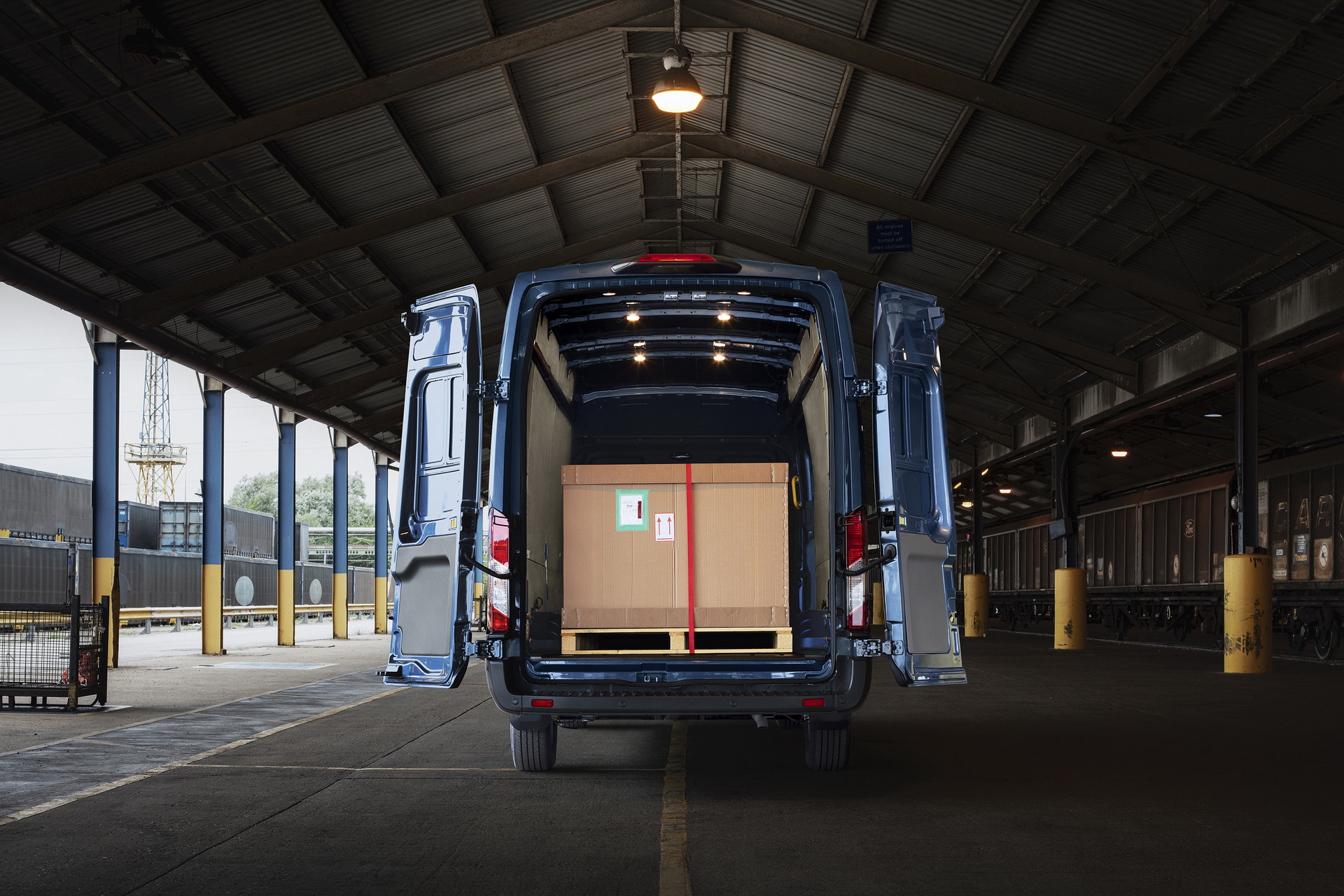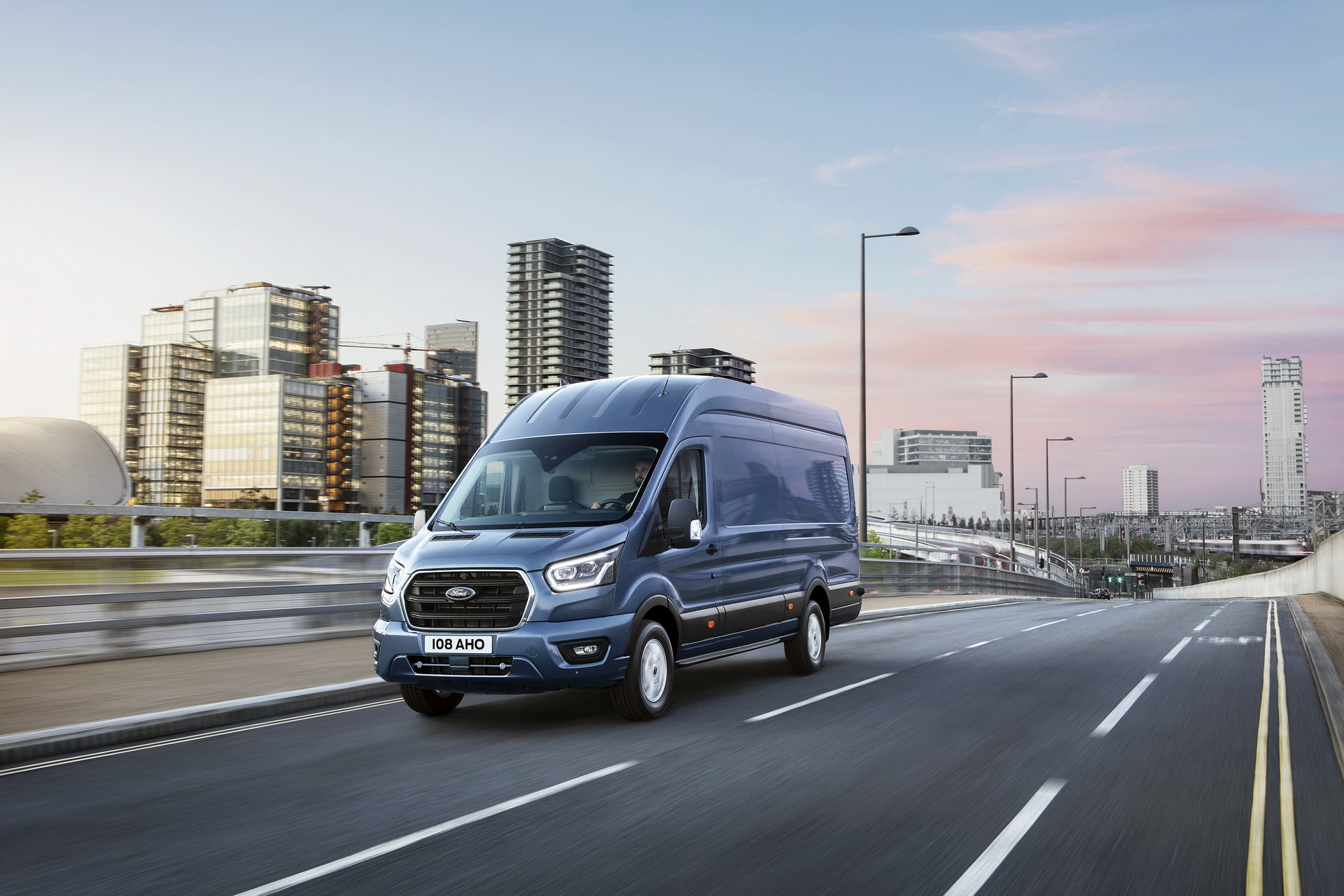Ford is currently attending the IAA Commercial Vehicle show in Hannover, Germany, where they’ve just unveiled their smartest, most efficient and most productive Transit models ever.
The new vans feature redesigned front ends, styling kits, new dashboard designs and advanced technologies such as plug-in hybrid options and FordPass Connect on-board modem technology, accessible via the FordPass mobile app.
Transit Two-Tonne
Starting us off is the Two-Tonne version, which is powered by a segment-first new diesel mild hybrid (mHEV) powertrain, delivering an additional fuel efficiency boost of around 3% compared to the regular diesel model.
“This is a Ford Transit for the modern business world: it’s as tough and practical as our customers demand, cost of ownership is reduced and its connectivity will improve operational efficiency,” said Transit global chief program engineer, Michael McDonagh. “Ford is also setting the pace in electrification, with a new mild hybrid powertrain ideal for urban deliveries.”
Buyers can now spec the Transit with an advanced 2.0-liter EcoBlue diesel unit that’s meant to be more efficient thanks to the increased 2,200 bar peak pressure of the fuel injection system. Additional fuel efficiency improvements come via the introduction of electric power-assisted steering, which is available on the two-tonne Transit for the very first time, but also weight saving measures, low-rolling resistance tires and various aerodynamic enhancements.
Aside from the 105 PS, 130 PS and 170 PS power ratings, now there’s a new 185 PS variant, which also produces 415 Nm (306 lb-ft) of torque.
As for the diesel mHEV technology, it’s meant to enhance fuel efficiency rather than provide any sort of performance boost over regular powertrains. Still, the hybrid system’s immediate torque assistance does offer improved responsiveness when pulling away at low engine speeds, according to Ford.
Car-like active safety and connectivity
Transit two-tonne customers will get to enjoy features such as FordPass Connect, the SYNC3 communications and entertainment system as well as Ford’s MyKey system – the latter allowing fleet managers to program the key to limit the driver’s speed and radio volume, or to permanently switch on active safety measures.
Speaking of safety, there’s Blind Spot Information with Trailer Tow, Intelligent Adaptive Cruise Control, Enhanced Lane-Keeping, Pre-Collision Assist with Pedestrian Detection, Front and Rear Wide-View Cameras, Active Park Assist, Park-Out Assist and Cross Traffic Alert.
Sharper exterior, all-new interior
Style-wise, the new Transit comes with a taller, more assertive three-bar grille and a redesigned lower fascia. Higher-spec models feature bi-xenon headlights and new LED daytime running lights with a distinctive Transit family signature. The interior is even more modern, featuring a new design, hard-wearing materials, new seat fabrics, improved stowage and more.
The new Transit Two-Tonne is scheduled to go on sale in Europe from mid-2019. Meanwhile, starting in Spring of 2020, rear-wheel drive Transit models will also be available with Ford’s 10-speed automatic transmission.
Transit Connect
Perhaps one of the most appealing variants when it comes to the new Transit van is the Connect Sport version, boasting an exterior styling kit, signature matte black sports stripes with silver or orange accents, and 16-inch Dark Stainless alloy wheels. The standard spec on one of these includes partial leather trim, a Ford Power starter button, dual-zone climate control, cruise control with automatic speed limiter and static cornering fog lights.
Powering the new Transit Connect is Ford’s all-new 1.5-liter EcoBlue diesel, available with 75 PS, 100 PS and 120 PS. However, customers looking for a petrol option can always opt for the 1.0-liter EcoBoost version with cylinder deactivation technology.
All engines are paired with the standard six-speed manual gearbox, although an optional 8-speed automatic is also available for the 100 PS and 120 PS EcoBlue variants.
Meanwhile, the new and very compact updated Transit Courier comes with 1.5-liter TDCi diesels (75 PS and 100 PS), or a 100 PS 1.0-liter EcoBoost unit.
Transit Custom
Last but not least is the Transit Custom, now available as a plug-in hybrid for the very first time.
The powertrain has a zero-emissions driving range of 30 miles (48 km) and uses the 1.0-liter EcoBoost petrol unit as a range extender. The total range is said to exceed 300 miles (483 km).
“The Transit Custom PHEV re-writes the rule book for a general purpose 1-tonne van, providing a versatile performer with zero-emission capability,” said Transit Custom engineer, Ian Porter. “Transit Custom PHEV demands no compromises, offering the same load capacity as a diesel van, and the freedom to complete long-distance journeys without the need to stop for a charge.”
A compact 14 kWh liquid-cooled lithium-ion battery pack provides power to the electric motor driving the front wheels, rechargeable via a charge port within the front bumper. On the road, there are three selectable EV modes: EV Auto (a default setting), EV Now (electric power only) and EV Later (system looks to maintain current level of charge).
Ford has also updated the rest of the Transit Custom range by adding a tweaked 2.0-liter EcoBlue diesel (the one with 185 PS), the segment-first diesel mild hybrid, plus all the advanced new connectivity and driver assistance features available in the Two-Tonne variant.



